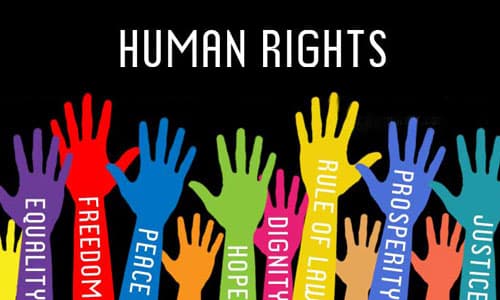Human rights in the United States are enshrined in the U.S. Constitution, its amendments, and federal and state laws.
The Declaration of Independence, by which the American colonies seceded from the British Empire in 1776, stated: “All men are created equal, and all are endowed by the Creator with unalienable rights, among which are life, liberty, and the pursuit of happiness. To secure these rights governments have been instituted among men, invested with equitable power by the consent of the governed….

Equal rights for men and women. Political Rights
The first ten constitutional amendments constituting the Bill of Rights were added to the Constitution in 1791. The amendments proclaimed freedom of religion, freedom of speech, freedom of the press, the right of the people to assemble peacefully, the right of the people to petition the government for redress, the right of the people not to be unreasonably searched and seized, the right to due process and a speedy and public trial by an impartial jury.
Despite the adoption of the U.S. Constitution and the Bill of Rights, slavery and discrimination against ethnic groups (particularly Indians and blacks) have long been legal in the United States.
In this article you will learn about some of the legal aspects of human and women’s rights, including:
We Trust
Enjoy the thrill of Fortune Coins Free Spins as you play your favorite slot games, earn exciting bonuses, and experience nonstop fun at the #1 social casino!



















